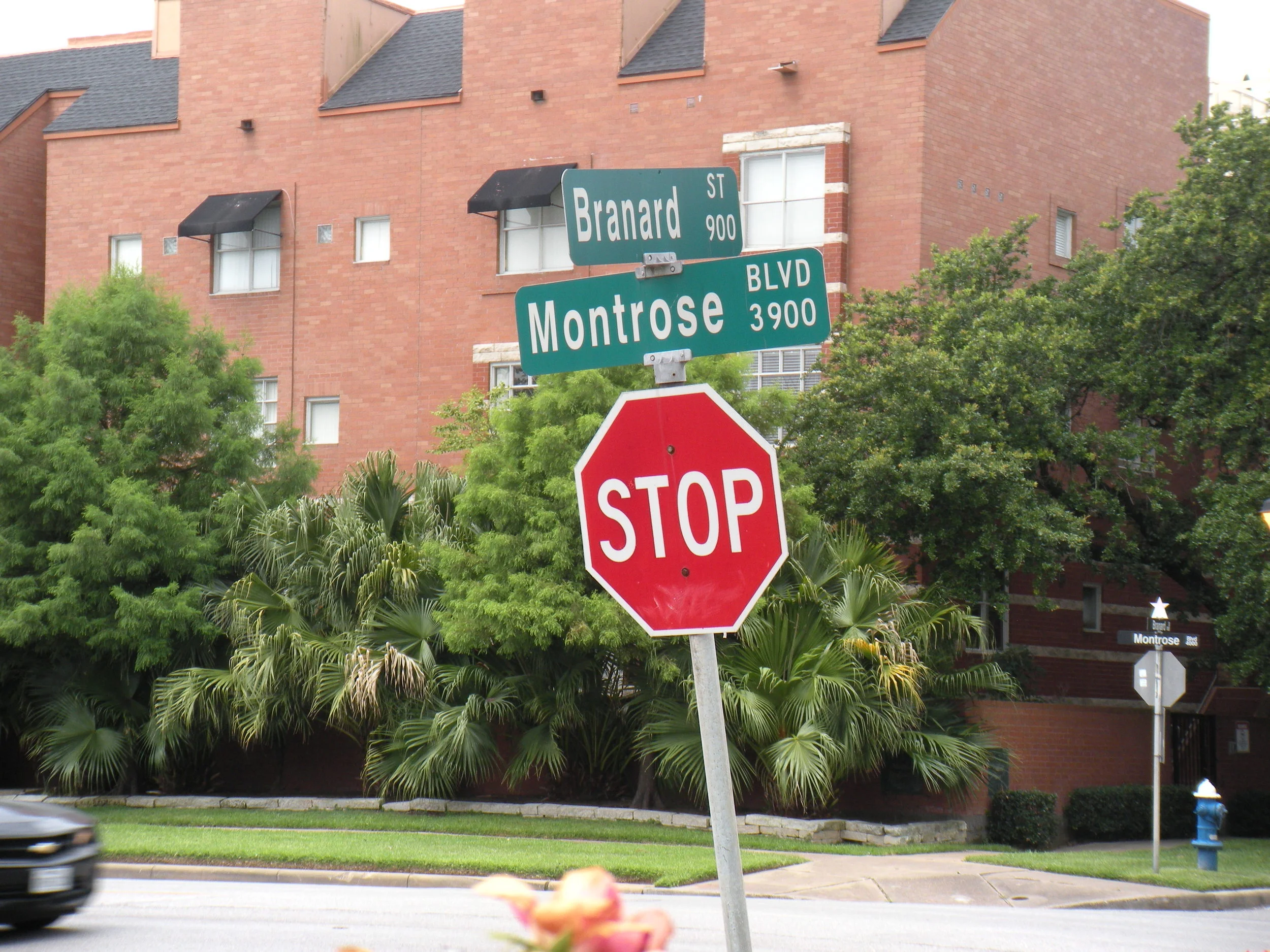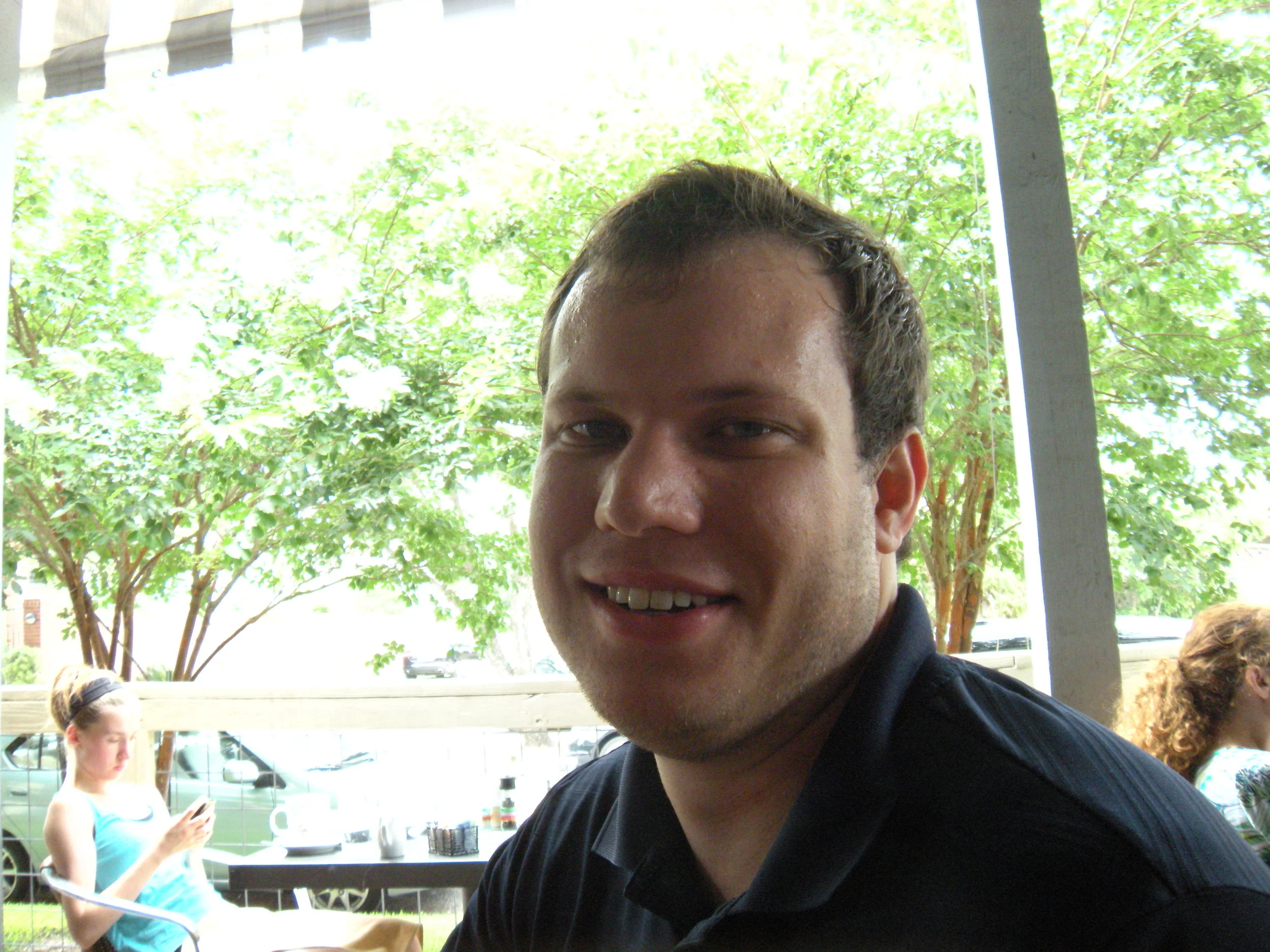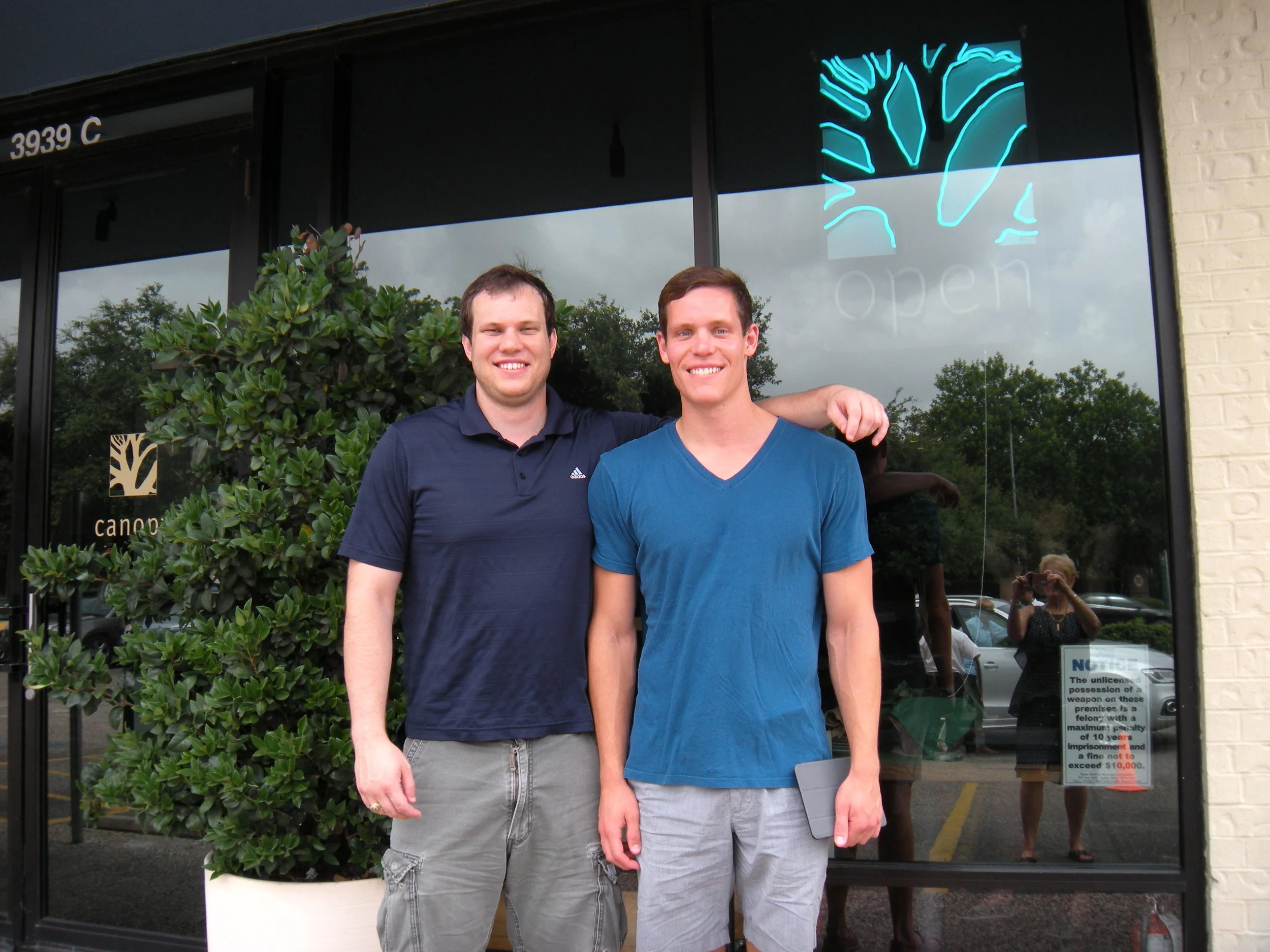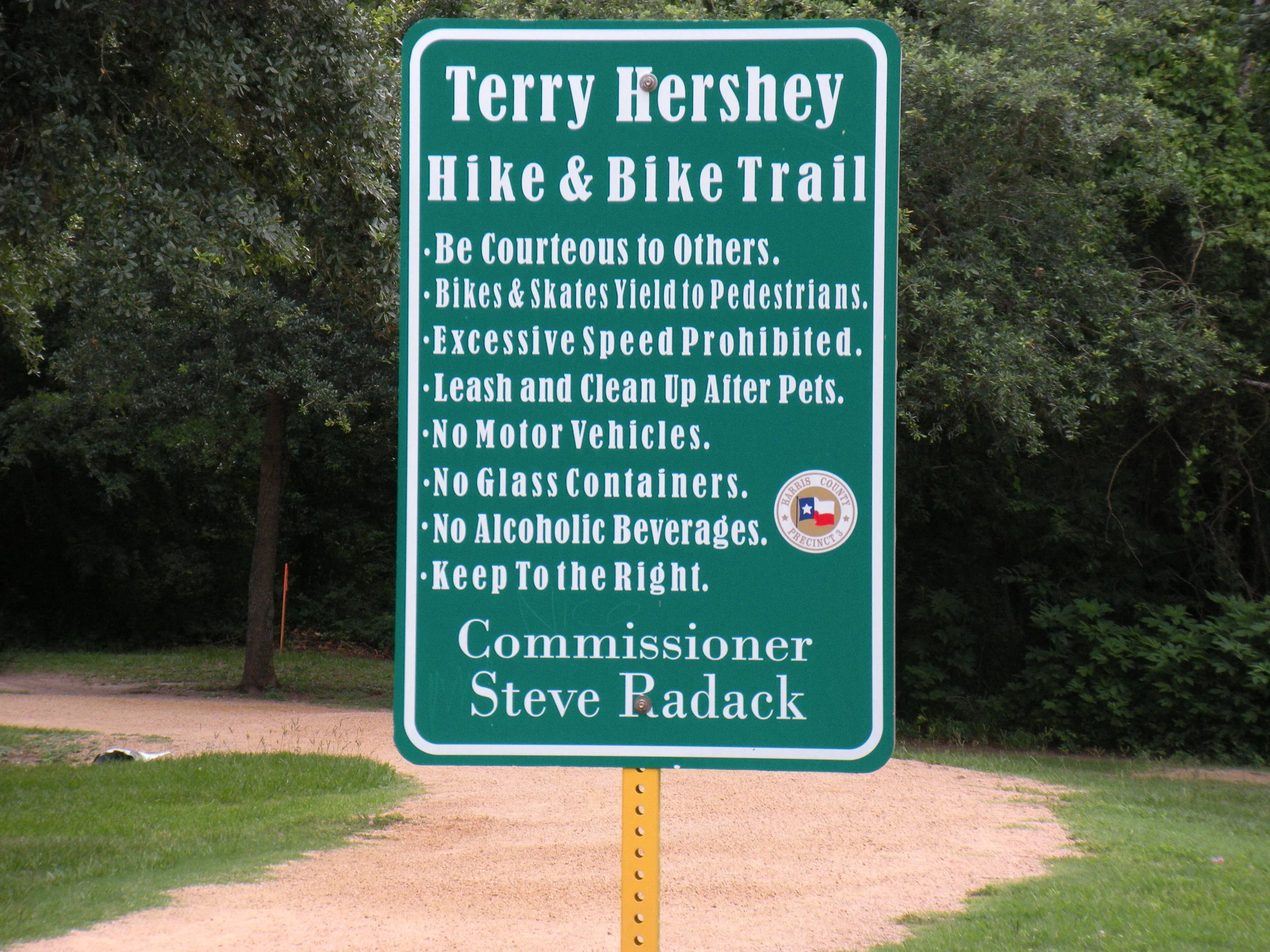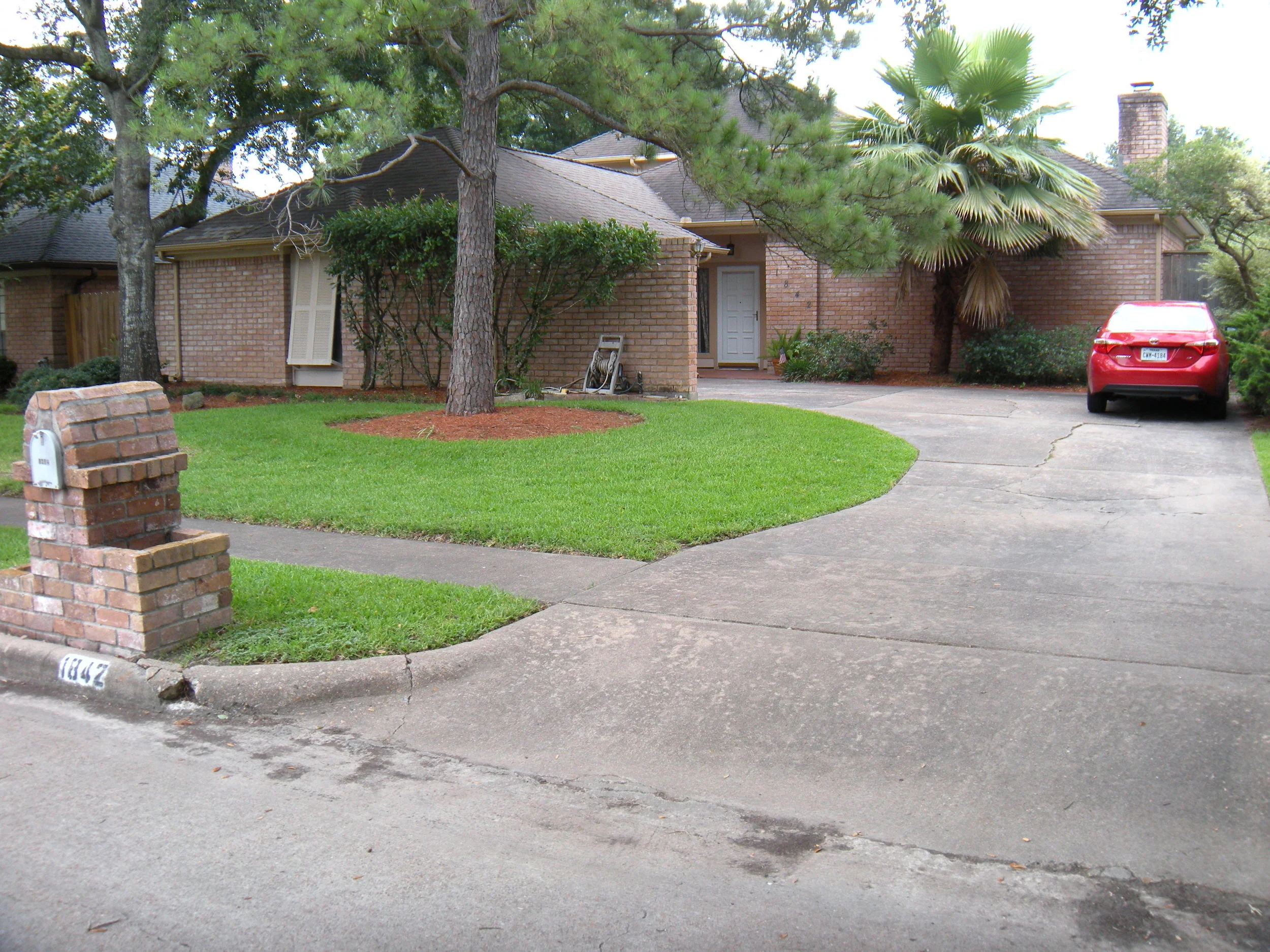We’re meeting at Canopy, on Montrose, between Richmond and Westheimer. Curtis is there when I get there. As soon as I take my seat, someone pops over to take our drink order. At a glance, I’d say waiters outnumber patrons two-to-one. We both order Bloody Marys, which come quickly. This is the most delicious Bloody Mary I’ve ever had. Everything about it is excellent—spicy, but not too, the perfect dash of Tabasco, the right amount of salt. The vodka’s a presence, but not an overpowering one. And the tomato juice is so good it makes me wonder if they make it fresh back in the kitchen.
Jimmy arrives. I rise to greet him with a hug. It’s been years. He’s an adult now, and taller than I ever thought he’d be. There’re loads of ways to prepare eggs and Canopy knows them all. Curtis and Jimmy orders eggs cooked some way or another. When I ask what the soup of the day is, I don’t actually listen to the answer because this get-together isn’t about food. I order the soup, which turns out to be edamame. When it arrives at the table cold and green, well, I have no one but myself to blame.
Jimmy and Sam became friends in third grade. Jimmy was a high-maintenance child, a kid who needed an audience for everything he did. I distinctly remember, at one point, telling him that I invited him over so he could entertain Sam, not so I could entertain him. But he wasn’t a brat. In fact, any mother would want him as a friend for her kid—he was honest, funny, kind, imaginative, and enthusiastic. What I really admired about him, and took as a sign of rare intelligence, was the way he used items for things other than their intended purpose. In his hands, a window shade became a hat, a house key a mighty sword, and a coke bottle a magnifying glass.
And now he sits beside me and talks like an adult, telling me about his job and his plans and the football program at A & M. This is the first time since he was a sophomore in high school that he doesn’t have a girlfriend, and I tease him about that. His mother raised him to be considerate, and girls like that in a guy. He catches me up on a few of his and Sam’s other friends—how Michael’s going to med school and has a nice girlfriend, and Bradley’s doing fine, sociable, just like his mother, Mitzi, who always had plans with friends.
It’s been a fine visit. We say good-bye. I’m kind of sad. He’s made me miss Sam, who’s in Beijing building a life far from David and me.
Curtis and I head for the fun shops on Westheimer. Walking through musky old stuff is one of my favorite things to do. Some of the pieces are quality antiques; others are whimsical, and not worth much. Often trendy shops will overcharge, so I’m surprised to see some good deals—furniture in good condition that costs a fifth of what you’d pay for new, though I’d never consider buying upholstered couches and chairs. Who knows who’s sat there and what they were wearing, or if they were wearing anything at all. What I enjoy most are the set-arounds—decanters, crystal, cream pitchers, vases. I like to look at the pretty things and think about where they’ve been and who owned them. I always find surprises, too. There are little mugs in the shape of men’s faces, most of them bearded with lumpy noses and heavy brows. Some of them sinister, some bumpkinish. Apparently there’s a whole line of the things; people collect them. Who are these people? Why?
As we stroll through the shops Curtis tells me about what’s going on at work, what the partners are up to, how a co-worker is floundering, what cases they’re handling. He chuckles when he describes how people in the office tease him about his car and the clothes he wears on casual Fridays. I’m glad he likes his job. Next Sunday we’re going to do brunch again—and afterwards we’re going to the estate sale of a wealthy suicidal hand surgeon. Good times.
The place to be
Here's Jimmy.
Jimmy and Curtis outside Canopy. See me taking the picture?
